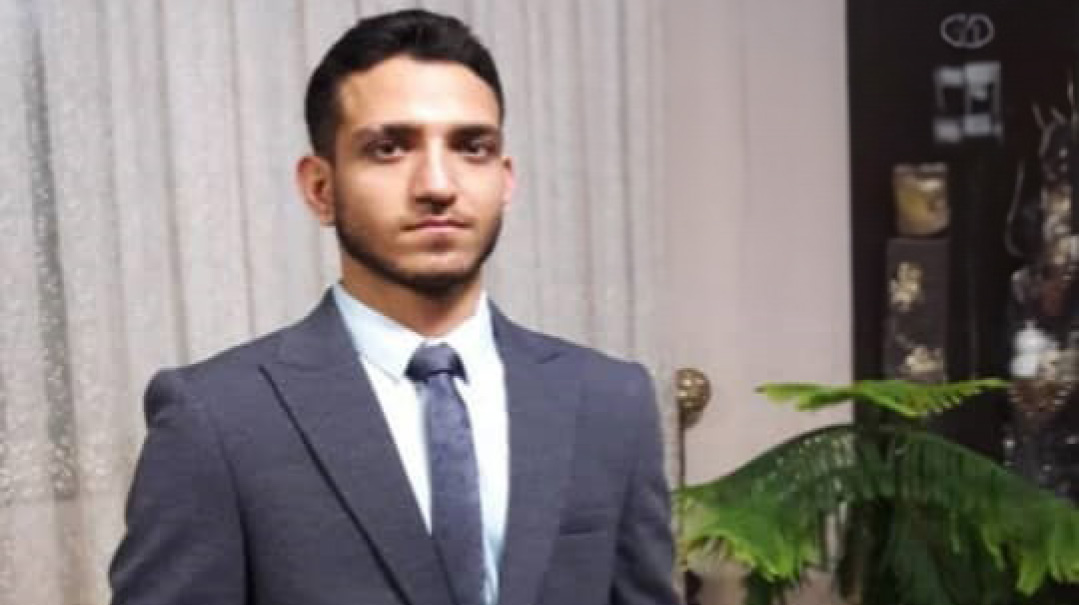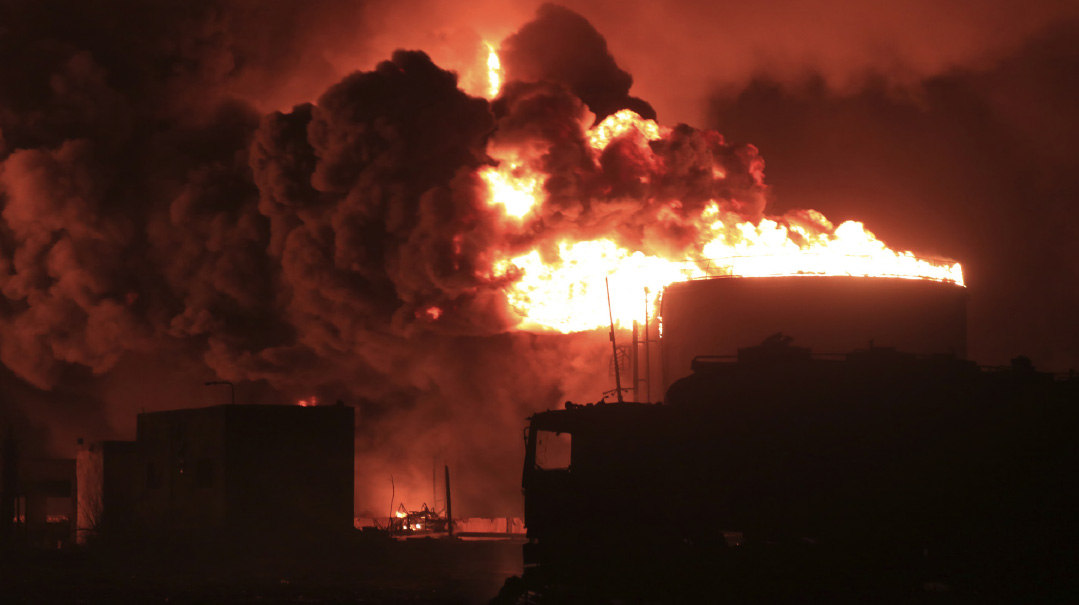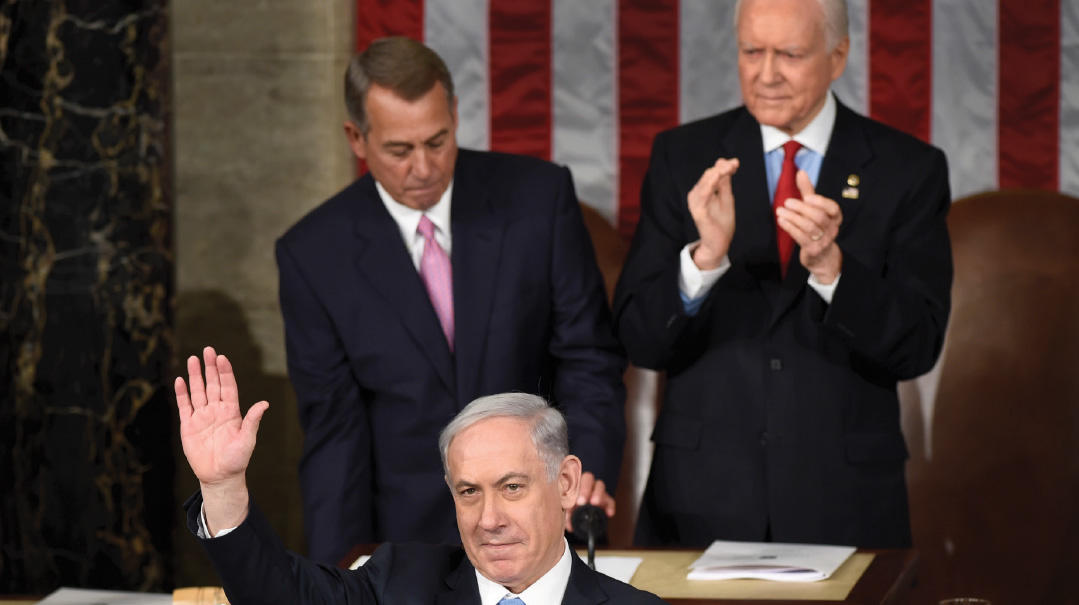Tehran Fallout

Raisi’s Demise Sparks Chatter on Heirs in Iran

The death of Iran’s President Ebrahim Raisi and other high-ranking officials in a mysterious helicopter crash in the foggy mountains of northwestern Iran on Sunday has unleashed a torrent of speculation about the future political leadership of the regime that is the world’s chief promoter of international terrorism.
Although the real power in this Islamic regime is not invested in elected leaders but in the ayatollahs, the demise of its political head has ignited a heated discussion that is even touching on a subject considered taboo: who will succeed Iran’s current “Supreme Leader,” the 85-year-old Ayatollah Ali Khamenei.
Iranian president Ebrahim Raisosaldati, better known as “Raisi,” was touring northwestern Iran by helicopter last Sunday, returning from the East Azerbaijan province, where he had gone to inaugurate the Giz Galasi hydroelectric complex, when his aircraft crashed near the city of Varzaqan.
The crash also claimed the lives of eight others, including Foreign Minister Hossein Amir-Abdollahian, a man very close to IRGC leader Qasem Soleimani, who has already been replaced by Ali Bagheri Kani; the governor of East Azerbaijan province, Malek Rahmati; the representative of Ayatollah Khamenei in the region, Mohammad Ali Ale-Hashem.
Messages of condolence poured in from Iranian clients, such as the terrorist organization Hezbollah, and their counterpart in Gaza, Hamas; as well as from world leaders with spotty human rights records, like Russia’s Vladimir Putin, China’s Xi Jinping, Turkey’s Recep Tayyip Erdogan, and the Palestinian Authority’s Mahmoud Abbas.
In a place like Iran, it takes a significant measure of loathsomeness to earn the nickname “the Butcher of Tehran.” But Raise managed to achieve it. Born in 1960 in the city of Mashhad, Raisi joined Iran’s principal Islamic seminary, Qom, at the age of 15. In the Iranian religious world, there are seemingly two ways to stand out: devote onself to scholarship, or just strictly adhere to the most extreme guidelines without delving too deeply into anything. Raisi chose the latter. So much so that he even presented himself as an “ayatollah” and later had to retract it, as he was not considered worthy of that title.
Nothing suits a totalitarian system better than having officials willing to carry out orders without question. Pursuing this path was how Raisi ascended the ranks of Iran’s judiciary. In 1988, he earned his infamous nickname for his service as one of the four judges on a “special commission” that sentenced thousands of political opponents (possibly as many as 30,000) to death, as ordered by then-Supreme Leader Ayatollah Ruhollah Khomeini. The world was shocked by the horrifying images of the condemned hanging from cranes. (Apparently back then, Western university campuses were not so concerned with human rights.)
The Gray Man
Ebrahim Raisi parlayed his notoriety into a campaign for political office in 2017, when he ran for president against Hassan Rouhani, the incumbent. Rouhani then had the backing of Supreme Leader Ayatollah Khamenei, and unsurprisingly won reelection. Raisi believed that Iran should intensify its anti-Western policies, but he had to wait four more years to achieve power.
In 2021, relations between Khamenei and Rouhani had dissolved, so Raisi ran again. This time, Raisi secured the support of the Supreme Leader, who cleared the decks for him by disqualifying a wide range of other candidates. That triggered widespread voter protests in the form of boycotting the election and submitting blank ballots. With a turnout of 48% and some 3.7 million protest votes, Raisi became president with 63 percent of the votes.
In one of his first interviews after being elected, Raisi was asked about the possibility of Iran establishing bilateral ties with Western nations.
“We would be able to establish ties with any country except Israel,” he replied.
As president, Raisi was considered almost irrelevant by some, who called him “the Invisible President.” But his apparent weakness was what had allowed him to ascend without drawing attention. Ayatollah Khamenei could rest easy: Raisi would never overshadow him.
“The Butcher was an assassin, he was corrupt, but everyone knows that his death probably won’t change anything,” Alexander Grinberg, Iran expert at the Jerusalem Institute for Strategy and Security, told Mishpacha. “Iranian presidents are the ones who execute monetary policies, but they never have any say in foreign policy or security. They serve as a pressure valve for popular anger, within the relative freedom of expression that exists in Iran. People can criticize the president, but it is forbidden to criticize the Supreme Leader. The one who calls the shots is Khamenei.”
However, this changed a few years ago: Khamenei had eliminated or expelled anyone who might threaten his power, but then his health started to go south. That’s when the “gray man,” Raisi, began to be mentioned as a possible successor to the Supreme Leader. Not because of his charisma, or any qualities as a religious leader; there was simply no one else. Except, of course, Mojtaba Khamenei, the second son of the Islamic leader, who with Raisi’s death is now the undisputed heir to the religious reins of the nation.
Who’s Next in Line?
After the helicopter accident, some theorized there was a conspiracy orchestrated by Israel’s Mossad. Alexander Grinberg of the JISS says he does not believe it was an Israeli intelligence operation, although he notes that “it’s possible we will never know” if outside influence played a role in the crash.
Raisi’s death has generated speculation about who will succeed him in office. While Ayatollah Khamenei declared five days of mourning and announced that the current vice president, Mohammad Mokhber, would take the reins, he also clarified that new elections would be held “within a maximum of 50 days.”
These upcoming elections will find an Iran devastated by harsh economic conditions. Societal discontent continues to brew against the regime.
“The economic situation in Iran is in dire straits,” Grinberg explains. “Inflation is skyrocketing. I can see plenty of expressions of joy from many Iranians, who are happy to see the death of these people. Because Iranian society has nothing to do with the Arabs. The leaders are anti-Semitic, but the people are not with them. Of course, there are those who support the regime. But they feel that they are losing support.”
Nevertheless, it is widely assumed that acting president Mokhber will not be the future leader, and the name getting the most circulation is Mohammad Baqer Qalibaf, currently Speaker of the Parliament of Iran, and a man closely linked to the Islamic Revolutionary Guard Corps. Qalibaf was the governor of Tehran from 2005 to 2017. Qalibaf’s ascension would bring the IRGC to full political power.

A Prisoner of Zion in Iran
Community leaders, askanim, and rabbis from around the globe are working desperately to halt the pending execution of a young Jewish man in Iran. The man, sentenced to death for allegedly murdering an Iranian citizen, claims the act was in self-defense, a narrative supported by the Iranian Jewish community.
The execution, initially slated for early this week, has been temporarily delayed by international pressure, ostensibly by a month. However, sources within the local community confided to Mishpacha that the final decision could be carried out in a matter of days, potentially without prior notice.
“We urge Jews worldwide to pray to prevent the execution,” said Iran’s chief rabbi, Rav Yehuda Gerami, in an exclusive interview with Mishpacha.
From Tehran, Rabbi Gerami asserted that he is exerting every possible effort to nullify the grim verdict, though he indicated that the young man’s situation is exceedingly precarious.
According to the family’s account, in 2022, Arvin Netanel Ghahremani, then only 18, was ambushed by a group of about seven individuals in the city of Kermanshah, some 300 miles (500 kilometers) west of Tehran. Among the attackers was a man in his forties who owed Arvin Netanel money and had repeatedly refused to repay him. Also present was Amir Shokri, who pulled a knife and stabbed Arvin Netanel. The young Jew fought back, wrested the weapon from Shokri, and ended up killing him.
Ghahremani was convicted of being an “accomplice to the intentional murder of a Muslim” and of “intentionally inflicting nonfatal injuries.” Despite the inherent danger of being imprisoned in Iran, those close to him believed he would ultimately be freed. Their hopes were dashed upon learning that the intended punishment was the death penalty.
In a frantic race against time, community leaders began searching for any legal loophole to avert this dire outcome. They knew that under Iran’s Islamic law, the decision could still be reversed. Islamic law provides that if the victim’s family pardons the accused, all charges are dropped. The most effective means to obtain family forgiveness is, unsurprisingly, money. Consequently, several askanim are now pursuing this option tirelessly.
“We are working around the clock from all angles to try to save him,” said Rabbi Moshe Margaretten, president of the Tzedek Association, an organization known for rescuing Jews from dire situations, in an interview with Mishpacha. He was contacted less than a week ago when the young man’s impending execution was announced.
According to sources, the Shokri family was offered the construction of mosques and schools in the deceased’s name and was tempted with approximately $600,000 in exchange for forgiveness — a staggering sum in any country, but an astronomical fortune in Iranian society. Nevertheless, reports from Iran suggest that the Shokris are still extremely angry and, for now, refuse to pardon Ghahremani.
Few Avenues of Hope
The web of international contacts has woven in Russian and Qatari connections, Neturei Karta members attempting to influence Iranian politicians, and even American politicians joining forces with Jewish activists to try to smooth the negotiations. But Rabbi Margaretten believes the best chance for an agreement might come from an unexplored avenue.
“I think the main chance of achieving an agreement is through the tribal lineage of the deceased’s family,” he says. “The victim is not Persian — he is a Kurd, from a tribe called Lakk. So far, the Jewish community has not succeeded in reaching an agreement with the family. But we believe that our best hope is to engage the Kurdish community, particularly the Lakk tribe. We are trying to identify influential Kurdish leaders to reach out to the family.”
Despite progress in negotiating for familial forgiveness, Jewish leaders’ greatest fear is the unpredictability of the government’s timelines.
“I was told that sometimes they grant you time — like in this case, another month, and then suddenly you find out it’s only a few days away,” says Rabbi Margaretten. “The best example is that last time, before we managed the postponement, we were informed of the execution just 24 hours in advance.”
Surprisingly, Iran’s Jewish community still numbers around 8,000. The reasons for their continued presence in a seemingly hostile land are complex. Chief Rabbi Gerami claims they enjoy full religious freedom and societal respect. Yet anonymous sources reveal a grimmer reality; although some choose to stay, many wish to leave, but find it nearly impossible.
“Israel is the only country that would accept them,” a well-connected community member, preferring anonymity, tells Mishpacha. “To move there, they must take all their personal connections. If even one relative remains in Iran, the consequences are dire. They’d face accusations of espionage and collaboration with Israel, putting their lives at serious risk.”
Apart from family forgiveness, there are only two other avenues that could guarantee Ghahremani’s freedom. The first, highly unlikely, is an official pardon from Ayatollah Khamenei, Iran’s supreme spiritual leader. Besides the fact that the accused is a Jew, the Supreme Leader showed no mercy to the 853 executed last year, and the ongoing political crisis suggests he won’t spare a moment for this case. The turmoil created by the sudden death of President Ebrahim Raisi in a helicopter crash on Sunday certainly won’t help matters.
The second avenue of hope is to try to bring the case to the country’s Supreme Court. While most activists’ efforts are focused on securing a family pardon, a legal team is working on an appeal to reach the highest judicial authority.
Meanwhile, Jews worldwide continue to pray for the swift release of Arvin Netanel ben Sonia Tziyona.
(Originally featured in Mishpacha, Issue 1012)
Oops! We could not locate your form.







